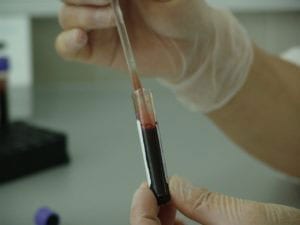Fanconi Anemia
What is Fanconi anemia?
Fanconi anemia is an inherited disorder that affects the bone marrow, resulting in a decreased production of all forms of blood cells. It is the most common inherited form of aplastic anemia.
What are the symptoms of Fanconi anemia?
A lack of white blood cells often results in infections, while low levels of red blood cells leads to fatigue. Low numbers of platelets means excessive bleeding.
Other symptoms include an abnormal heart, lungs, or digestive tract, bone problems, vitiligo, changes in the color of the skin, hearing problems, eye and eyelid issues, malformed kidneys, issues with the formation of the hands and arms, short height, small heads, and genital changes. People may also experience learning disabilities, a failure to thrive, low birth weight, and intellectual disabilities.
Complications are possible, including bone marrow failure, forms of blood cancer, and forms of liver cancer. It is important to monitor people with Fanconi anemia to ensure that they do not develop any of these conditions.
What causes Fanconi anemia?
The mutated gene for Fanconi anemia is passed down in an autosomal recessive pattern. This gene damages cells and stops them from repairing DNA, which leads to the issues with bone marrow.
How is Fanconi anemia diagnosed?
A diagnosis is typically received in childhood, between ages three and 14. Doctors may perform a number of different tests to obtain this diagnosis, such as bone marrow biopsies, complete blood counts, developmental tests, checks for damaged chromosomes, X-rays, CT scans, and MRIs, hearing tests, HLA tissue typing, and ultrasounds of the kidneys.
What are the treatments for Fanconi anemia?
If people only experience mild symptoms, they may not require intense treatment. Check-ups and monitoring for complications may be enough. For others, growth factors can improve blood counts.
A cure for this condition exists in a bone marrow transplant, which fixes blood count issues. If a transplant is not possible, doctors will use hormone therapy in combination with low doses of steroids.
Other treatment options include antibiotics, blood transfusions, and the vaccine for HPV.
In order to prevent complications, people with Fanconi anemia should avoid risk factors for other cancers. Certain vaccinations may also reduce the risk of complications. They should also encourage genetic testing for their relatives.
Where can I find out more about Fanconi anemia?
Fanconi Anemia Articles

Aggies’ Head Coach Jimbo Fisher Says Gene Therapy Could Cure Son’s Fanconi Anemia

Patients with Newly Diagnosed Fanconi Anemia Should Avoid alloHSCT

First Patient Dosed in Phase 2 Fanconi Anemia Clinical Trial

Long-Term Results for Fanconi Anemia Treatment Indicate Efficacy

Investigative Gene Therapy for Fanconi Anemia Receives PRIME Designation


Gene Therapy for Fanconi Anemia Gains IND Clearance From the FDA



